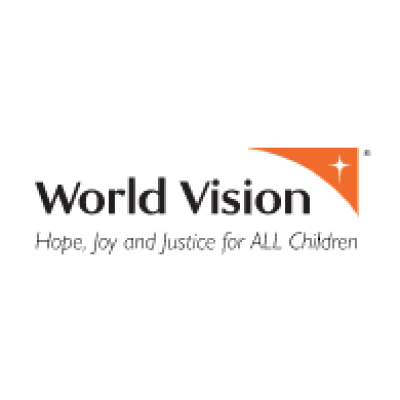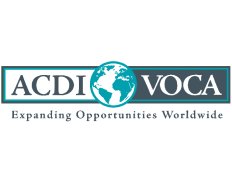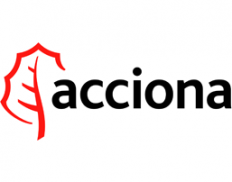Details
Description
Background
Tourism is a key economic sector in Sri Lanka. The sector is the second highest foreign exchange earner of the country and accounts for more than 5 percent of its Gross Domestic Product (GDP). Over 40 auxiliary industries are dependent on the tourism sector. By 2018, tourism provided employment to 388,487 people across the nation, of which 169,003 were direct employees of hotels, tourism operators, tour guides, and other allied sectors [1]. Other estimates point to as many as two million people being directly and indirectly engaged in the sector, mostly through formal and informal small and medium enterprises. The tourism sector has shown remarkable resilience even after several challenges it has faced in last four years. It has been considered a key sector which may support the country to address current existing economic difficulties as Sri Lanka continues to be considered as an attractive tourism destination and the high net income earning potential of the sector.
UNDP Sri Lanka’s involvement with the Sri Lankan tourism sector was initiated in 2018 with the technical support provided to initiate the National Sustainable Tourism Certification (NSTC) programme. Initially the programme was launched for the accommodation sector and thereafter it was expanded to include destination management certification. Further, in the aftermath of the COVID-19 pandemic, UNDP supported a rapid assessment of the impact of COVID-19 on the tourism sector in Sri Lanka and thereafter a Roadmap for the recovery of the sector as a vibrant, resilient, and sustainable engine of growth was developed [2].
The strategic priorities identified in the roadmap are informed by three principles to facilitate the transformation of Sri Lanka’s tourism sector. Through adapting them to the current context, these principles are still valid.
1. Revival of the Sector Must Target the Entire Value Chain
Tourism is a major employment generator and a lifeline for many rural entrepreneurs in Sri Lanka. Tourism is a potentially major employment engine for vulnerable groups such as women and youth in rural areas with little or no-income opportunity. As such, recovery efforts must be wide ranging to target the entire value chain of the hospitality industry, from star-class hotels with large workforces and supply chains to SMEs and individual operators and suppliers to the industry.
[1] SLTDA Annual Report 2018
[2] Putting People First: Building a More Resilient Tourism Sector in Sri Lanka
This requires:
Developing a multi-sector approach to mitigate and manage the loss of livelihood and income insecurity in the hospitality industry (i.e working with labour, agriculture, health, skills development, and industries).
Targeting the most vulnerable women, youth, and disadvantaged groups (disabled, remote rural communities dependent on tourism) in recovery initiatives to assure they remain in the industry.
Ensuring that targeted relief measures are available and accessible to tourism operators and hospitality workers is vital for revival and recovery.
2. Foster a Whole of Government and Whole of Industry Approach to Tourism Development
Tourism contributes directly and indirectly, through its multiplier effect, to allied services such as transport, construction, agriculture and food processing, finance, technology providers, craftspeople, artisans etc. Tourism is a facilitator of cultural exchange and mutual understanding and peace, as it counters discrimination and prejudice between individuals and societies. Past experiences in Sri Lanka have shown that tourism can bounce back strongly and quickly, underpinned by:
Strengthened coordination with regard to services for tourism development available at provincial level and improved coordination among tourism resources management agencies (Cultural Fund, Wildlife Department, Coast Conservation, Sri Lanka Railways).
Keeping an open and transparent line of communication with the industry and individuals on overall tourism development.
Ensuring easily accessible and responsive grievance recording and redress systems.
Ensuring that regular and systematic stakeholder consultations underpin development priorities and timelines.
3. Sustainability and Resilience Underpinning the Transformation
Recovery and development efforts should be approached as an opportunity to steer the industry towards implementing longer term policy goals, while jump starting the sector transformation into a new model of sustainable consumption and production. The tourism sector responds to many key Sustainable Development Goals (SDGs) in areas such as decent work (SDG 8), natural environment (SDGs 14 and 15), sustainable consumption and production (SDG 12), and climate change (SDG 13). However, specific actions in the sector can also influence gender parity (SDG 5), skilled workforce (SDG 4), and green urban design (SDG 11).
For decades, Sri Lanka has been pegged into the mass, low-spending tourism market, and this ‘branding’ overshadows the recent development of niche, high-end products and services around nature, health and wellness, and adventure. To implement the government’s vision for tourism transformation towards ‘indigenous’ yet upgraded, high yielding markets are required. This sector transformation relies heavily on the key elements listed below:
Sustainable tourism to be at the center of the national tourism agenda in moving forward.
Relief investments to target upgrading of facilities, compliance to health and safety measures, upskilling of the workforce, etc.
Promoting safe and decent jobs and ensuring modern, upgraded training facilities are in place to produce a skilled hospitality workforce that attracts more women and youth.
Ensuring traveler safety and security in the country and consumer protection measures to deal with the uncertain market.
Supporting the transition from informal to formal through regularization and standardisation of MSME and small operators in the value chain.
Develop new and niche markets around indigenous offerings such as wellness, adventure, nature, local culture and cuisine, and marine-based tourism.
Promote and incentivize domestic tourism to retain tourism spending in country.
Increase investor confidence and develop new financing mechanisms such as green and climate financing to incentivize sustainability focused investments in the areas of energy, water, waste, and disaster risk management.
The Government of Sri Lanka (GoSL) has drafted a National Tourism Policy and it provides further guidance on the future of the industry in Sri Lanka.
UNDP has been assisting the Government of Sri Lanka (GoSL) since 1967 to achieve sustainable human development in economic, social, and environmental fronts. Working closely with the GoSL at national, regional, and local levels, the Climate and Environment Team (CET) of UNDP is building up institutional, legal, and individual capacities to respond to the effects of climate change and natural and manmade disasters, by exploring the potential of renewable energy and resource efficiency in production and consumption, while supporting the reform and modernization of environmental management systems and protecting our biodiversity.
As a key development partner of the GoSL, UNDP intends to develop a tourism development project under the Green Development Portfolio of the Climate and Environment cluster. The project will be mainly supporting the government and other stakeholders to develop, implement, and monitor different initiatives in line with the above three principles and any further guidance provided by the National Tourism Policy.
UNDP is seeking a consultant to develop the UNDP project document on tourism sector development for the next 5 years (2023-2027) in line with the Country Programme Document of the UNDP. She/he will be responsible for developing the project as per the views of key stakeholders and accepted UNDP formats for project document development including relevant annexures
Please refer to https://popp.undp.org/UNDP_POPP_DOCUMENT_LIBRARY/Public/PPM_Formulate%20Programmes%20and%20Projects_Project%20Document%20Template.doc
THE ASSIGNMENT
The Consultant will report to the National Project Coordinator under the overall guidance of the Team Leader (Climate and Environment) at UNDP Sri Lanka. The Consultant will be home-based with some travel within the country and will work with the staff of UNDP and other relevant agencies and stakeholder groups to develop the project document. The consultant is expected to review all the relevant secondary information related to the sustainable and resilient development of the Sri Lankan tourism sector in the next five-year time period and lead stakeholder consultations / meet key stakeholders and obtain their views to identify the strategic interventions UNDP could make to ensure the National Tourism Policy is implemented. Thereafter, the consultant should prioritize the interventions under the guidance of the UNDP Sri Lanka team and develop the project document. The project document should be validated with key stakeholders before finalization.
SCOPE AND OBJECTIVES
The objectives of this assignment are:
To review all relevant documents applicable to sustainable and resilient tourism development in Sri Lanka within the next five years. The review of documents should include but not be limited to the following documents:
National Tourism Policy
Master Plan, Strategic Plan, Operational & Action Plan, and Implementation & Monitoring Plan of the Sri Lanka Tourism Development Authority
Strategic Action Plans of other key tourism related agencies such as Forest Department, Department for Wildlife Conservation, Central Cultural Fund etc.
National biodiversity policies, strategic action plans, and other key documents
Provincial level tourism development plans and district level development plans that might be of importance
Tourism programme documents of other key development agencies operating in Sri Lanka
To conduct key stakeholder consultations including but not limited to the following stakeholders:
Ministry of Tourism, Ministry of Finance, Central Bank of Sri Lanka, Ministry of Environment, Ministry of Cultural Affairs, and Ministry of Wildlife and Forestry
Sri Lanka Tourism Development Authority and other key tourism-related government agencies
Provincial Councils
Industry representatives such as the Sri Lanka Inbound Tour Operators Association, Sri Lanka Hotel Association etc.
Representatives of key development initiatives of the country such as the Colombo Port City development initiative
Key UN agencies and development agencies with a mandate to work in the tourism sector
Prioritization of interventions should happen under the guidance of the Senior Management of UNDP and the Team Lead & Policy Specialist and Quality Assurance Analyst of the Climate and Environment Team of UNDP. In the prioritization process attention should be paid to strategic interventions that will improve the competitive positioning of the tourism industry, incentivize sustainable and responsible tourism initiatives, stimulate investments in tourism-infrastructure development and research, risk management mechanisms to face potential future disasters, and the promotion of national and provincial level collaborations for higher value creation at the local levels.
Validation – A project appraisal meeting should take place with key government, private, UN, and civil society organizations. The project document should be finalized based on the comments made at the validation meeting.
Duties and Responsibilities
Under the overall guidance of the Team Lead & Policy Specialist of the Climate and Environment Team of UNDP, the consultant will be responsible for the following functions:
1. Collect, analyze, prioritize, and identify key strategic interventions UNDP should make within next five years to develop a resilient and sustainable tourism sector in Sri Lanka.
Based on the review of key documents and discussions with the key agencies and other stakeholders, identify the strategic interventions, including capacity building efforts of different tourism related organizations, UNDP should make within the next five years. Then prioritize the identified interventions in consultation with key UNDP staff and other stakeholders.
2. Develop, validate, and finalize a project document as per the formats provided by UNDP.
Develop the project document including the Theory of Change and other annexures including a monitoring framework and validate the draft document with the key stakeholders. Then, the project document should be finalized addressing all the comments made at the validation meeting or prior to the meeting.
Key Deliverables
Inception report clearly indicating the refined methodology and timelines after reviewing relevant policies, action plans, programme documents and taking the current country context into consideration.
Draft tourism development project document with all the relevant annexures in the formats provided by UNDP.
Final project document and annexures after addressing all comments made at the validation meeting.
EXPECTED DELIVERABLES & DUE DATES
Tasks and Deliverables
Due date
Amount (LKR)
1.
Inception report clearly indicating the refined methodology and timelines after reviewing relevant policies, action plans, programme documents and taking the current country context into consideration.
10th October 2022 (3 working days)
30% of the total amount
2.
Draft tourism development project document with all the relevant annexures in the formats provided by UNDP
25th November 2022
(35 working days)
40% of the total amount
3.
Final project document and annexures after addressing all comments made at the validation meeting
15th December 2022
(2 working days)
30% of the total amount
TIMEFRAME
The envisaged time frame of the consultancy is for a maximum of 40 working days spread over 4 months from the commencement of the contract. The payments will be based on the deliverables and number of days that may be needed to complete the work, which may vary depending on the practical issues.
Competencies
The prospective candidate should have:
1. Technical Competencies
Strong industry knowledge of tourism, policy planning and project management.
Demonstrated knowledge and past experiences in developing policies and programmes, programme analysis and mainstreaming gender and youth related issues in tourism or any other development sector.
2. Partnerships
Maturity and confidence in dealing with senior members of national and private sector institutions.
Displays cultural, gender, religion, race, nationality and age sensitivity and adaptability.
Excellent coordination skills and result oriented collaboration with personnel with different age groups, educational levels, backgrounds – especially for this case, the players in the district, divisional and community level.
Excellent communication (both oral and written) and partnership building skills with multi-dimension partners.
3. Results
Promotes the vision, mission, and strategic goals of UNDP.
Builds strong relationships with clients, focuses on impact and result for the client and responds positively to feedback.
Good team player who has ability to maintain good relationships.
Required Skills and Experience
Masters in Tourism, Policy Planning, Project Management or a related field;
At least 10 years of experience in programme analysis and development at the national level;
Minimum of 10 years of experience in working with different agencies of the GoSL and tourism management related organizations;
Minimum 3 years of experience in mainstreaming gender and youth related issues in tourism or any other development sector;
Minimum of 3 years of experience in developing UNDP project documents;
Professional and or working proficiency in the English language in addition to Sinhala/ Tamil.






